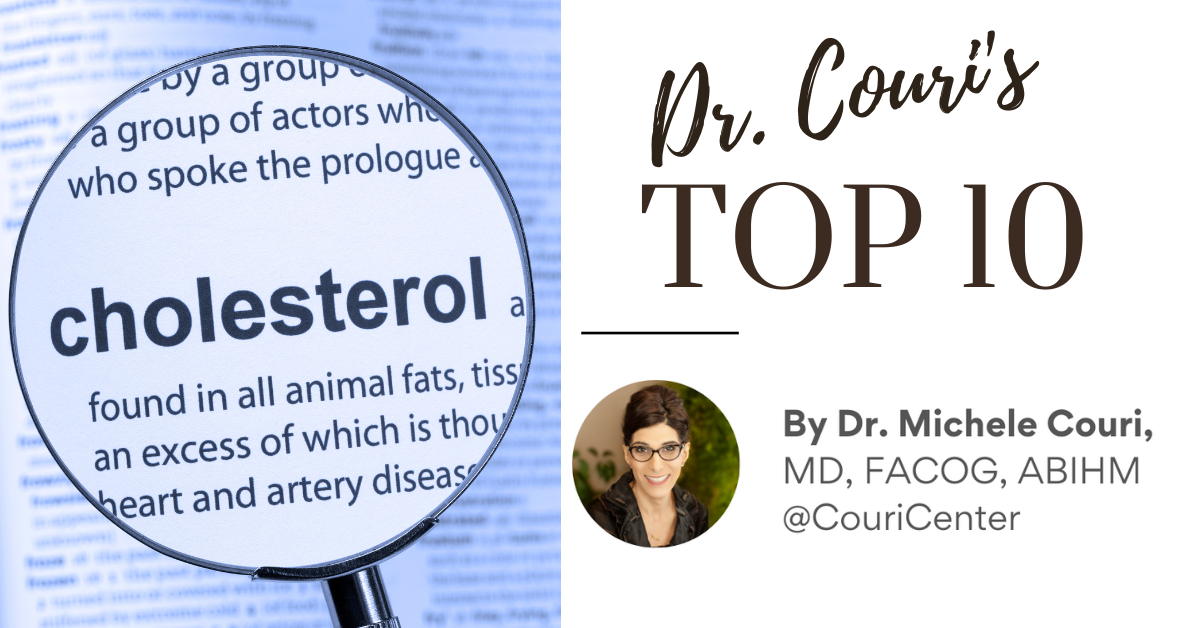November 29, 2022

TOP 10 REASONS TO KNOW YOUR CHOLESTEROL LEVELS IN MENOPAUSE
- Cardiovascular disease (CVD) is the leading cause of death in both men and women, but women tend to develop CVD 7-10 years later in life compared to men, likely due to the protective effect that estrogen provides until menopause.
- Dyslipidemia (abnormal levels of lipids or fats in the blood such as cholesterol and triglycerides) is a known risk factor for cardiovascular disease in both men and women. It is one of several risk factors for CVD.
- Menopause is associated with changes in lipid (cholesterol) parameters such as elevations in total serum cholesterol, LDL, and triglycerides and decreased levels of cardioprotective HDL. These changes can predispose menopausal women to CVD through plaque formation.
- Ongoing and emerging research is showing that with menopause, there is a loss of the cardioprotective benefits of HDL.
- Early onset of estrogen replacement during menopause can improve dyslipidemia but does not improve CVD outcomes so it is not recommended to be used as a primary prevention against CVD.
- While the average age of menopause is 52, 10% of women will experience early menopause (before age 45), and early menopause increases a woman’s relative risk of CVD by 50%.
- In addition to women with early menopause, other risk factors for dyslipidemia include PCOS (polycystic ovarian syndrome), premature menopause (<40 years of age), primary ovarian insufficiency, and family history of dyslipidemia. Early identification of these women at increased risk is important for CVD risk reduction and prevention.
- Women with PCOS consistently have been found to have elevated levels of atherogenic LDL and triglycerides and lower levels of cardioprotective HDL compared to women without PCOS, regardless of BMI and ethnicity. In addition, the type of LDL in women with PCOS tends to be the type with small dense particles which are more likely to cause CVD compared to the LDL type containing large fluffy particles.
- Menopause is a very important opportunity to screen for CVD risk factors among our patients, and every menopausal patient should undergo a risk analysis.
- A lot of my patients who have had a hysterectomy with or without their ovaries being removed ask me if they still need their yearly exam since they no longer need a pap smear. The well-woman exam provides the critical setting for preventive screening for CVD and to initiate preventive measures that will reduce the risk of CVD-related disease.
We’re here to help. If you have questions regarding your cholesterol levels and menopause, schedule an appointment online via our patient portal or call 309-692-6838 today. New patients are always welcome.
To Your Health,
Dr. Couri
Source Used:
Totosyan, Nare, et al. Dyslipidemia in Midlife Women:Approach and Considerations During the Menopausal Transition. Maturitas. December 2022. Volume 166: 14-20.
